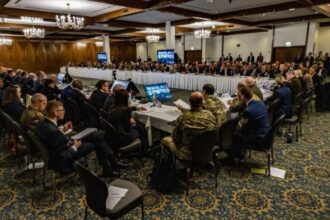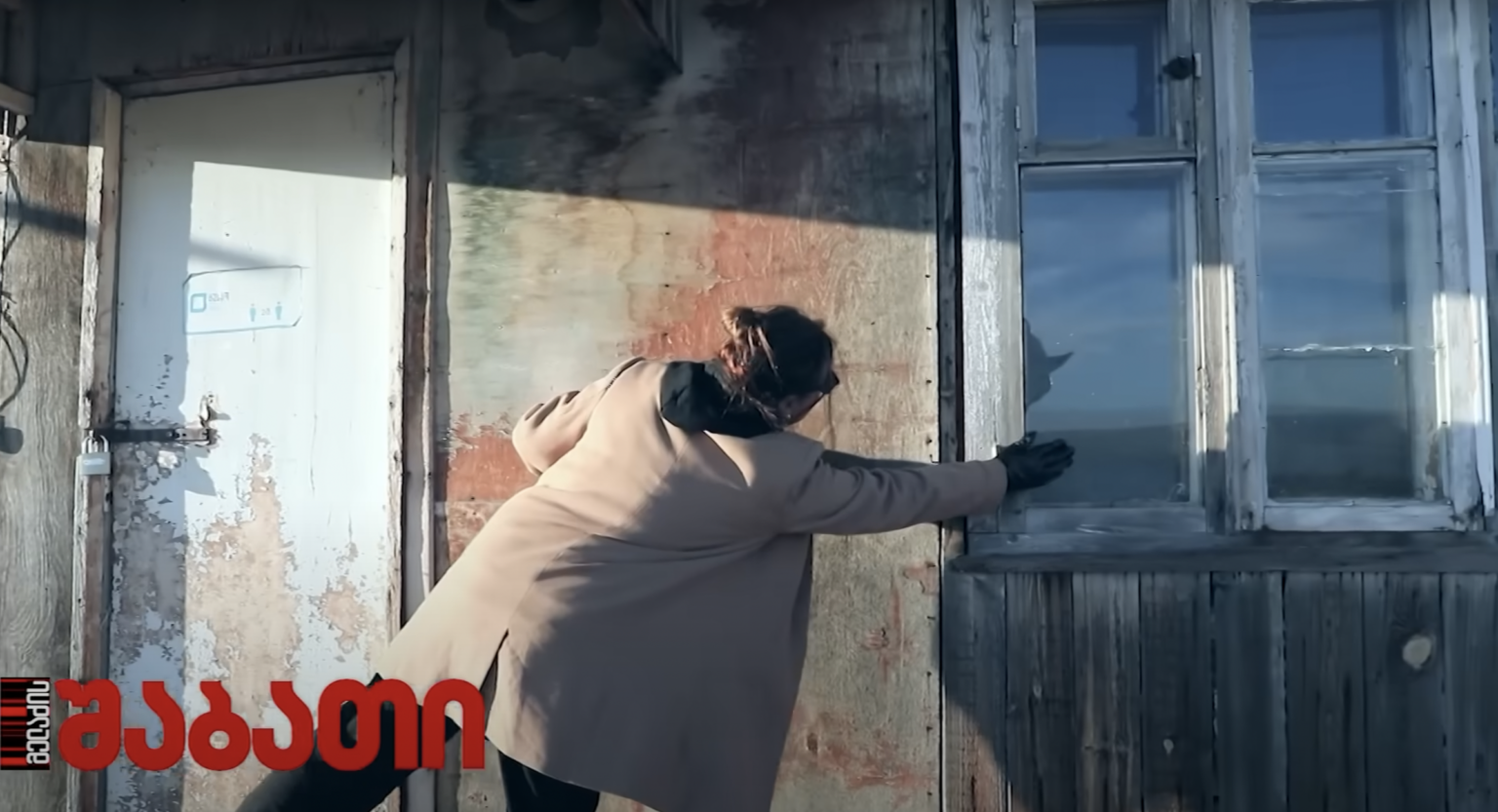An investigation by the opposition-leaning TV Pirveli revealed alleged methods of vote-rigging. These included alleged cases of voter pressure, voter intimidation and vote-buying through complex networks of “call centres” and dubious observers missions linked to ruling party.
The crew of Nodar Meladze’s Saturday program on TV Pirveli prepared a bombshell investigative piece that pointed out various schemes the ruling Georgian Dream Party allegedly used to manipulate the 2024 parliamentary election. The main findings are listed below. This piece was first broadcast on TV on November 3rd, about a week following the crucial vote.
“Call Centers”
According to the investigation Georgian Dream used an extensive and complex system of “call centers” to mobilize voters on Election Day. The article cites “over a 1,000” leaked files as evidence. It also includes audio recordings, chats, photos, and software data.
Each call center consisted of four people – two call centers operators, a computer technician, and a “captain”, who was responsible for receiving party instructions and updating higher-level coordinates. Each call center’s mission was to mobilize voters through “responsible people” – those who directly contacted the voters to get them to vote for the GD.
The investigative piece aired audio recordings of various unidentified instructors allegedly ordering call centers to intensify their mobilization efforts throughout election day. The investigative piece also broadcast audio recordings of unidentified instructors who allegedly ordered call centers to intensify mobilization efforts on election day. The TV Pirveli crew claims it also accessed the software used by call centers. This software allegedly contained data on 6,000 captains. It was monitored by the party headquarters and required operators to enter data for those who had already voted in the GD.
According to the investigation the party, with the assistance of other state agencies, may have illegally obtained and processed personal data of voters. It is possible that each registered voter was assigned a unique number. The party allegedly then provided captains with a list of voters that included “responsible people.” The investigative piece depicts TV Pirveli crews arriving at some of these locations where GD call centres were allegedly located. The video shows people, identified by the TV station as neighbors, who confirm that they saw ruling-party MPs hanging around there or comment that they knew that party representatives were present on election day.
The piece identifies Aleksandre Kobidze, an attorney, as one of the “captains”. In the piece, an audio recording of a telephone call is played. A man identified as Kobaidze confirms his involvement in the mobilization scheme. The investigative authors claim that, citing other audio recordings they have obtained, those involved in this scheme were paid cash.
Carousels
TV Pirveli also investigated some of the documented cases involving possible carousel votes. The crew of the channel tried to track down some of the people identified as being involved in an alleged scheme to vote multiple times, or to vote for someone else. They did this by inserting a different ID number in their passports or by using another person’s ID card. According to the alleged scheme GD-loyal registrars permitted such individuals to vote for someone else and facilitated the process.
The TV story shows a crew trying to find Maia Naveriani. She is a Marneuli City Hall worker who was allegedly involved with a scheme in her capacity as a district commissioner and loyal registrar of the ruling party. The video shows Naveriani’s colleagues telling the crew she has a day off while a man identified by Naveriani’s husband claims she went shopping. The same man then makes death threats to the TV Pirveli crew (Georgian Dream received 79.6 per cent of the vote in Marneuli, a municipality in the Kvemo Kartli Region).
The investigation also found a woman who lived in Keshalo village, in the Marneuli municipality, whose ID had allegedly been used by another woman to vote. The observer who suspected a mismatch later claimed to TV Pirveli, after viewing the footage of the woman, that it was a different woman than the one who attempted to vote using her ID.
In another episode, a TV crew finds out that a woman is suspected of voting three times. She voted twice at a voting station and once from home using a mobile ballot box. This is for those who are unable to get to a polling place due to health issues. The investigation reveals that the woman works as a kindergarten employee, shows her video and argues that she is fit enough. It also questions how she ended up on the list for the mobile ballot box.
Watchdogs with a Party Affiliation
The investigative piece also looks at the dubious electoral monitoring missions that are allegedly affiliated to the ruling party, and use their mandates to interfere with the vote.
The International Observatory for Barristers and Lawyers (headed by Grigol Gagnidze – Agladze’s husband) and the Observer of Politics and Law (headed by Eka Agladze) both deployed 2,491 observer. My Vote (the largest independent local mission) deployed 2,000 election observers on election day. The main Georgian election monitor group, the International Society for Fair Elections and Democracy, mobilized around 1,500 observers. Other groups that have been accused of being dubious include the Khashuri Women Entrepreneur Union led by Nana Sharashidze who deployed 386 monitors, and the Khoni IDP Initiative Group led by Zaza Kaandia which deployed 308. TV Pirveli reported that the latter was one of the first groups to register voluntarily with Georgia’s Foreign Agents Register.
TV Pirveli’s investigative report suggests that, using various election day footage captured by local observers and the media as evidence of their involvement in carousel schemes and voter pressure, representatives of these watchdogs were actively engaged. This included hanging out inside and outside of polling stations with neighborhood gangs, sometimes even following voters into the voting booth to influence their voting behavior or filter out potential opposition voters.
One of the suspected goals of these watchdogs is to create chaos and divert observers so that those who are involved in alleged carousel scheme can get away with voting for someone else. Some individuals wearing badges of these watchdogs were seen aggressively acting toward journalists. Others were observed outside precincts holding lists that looked like vote buying operations.
Gagnidze was unable to confirm in an interview with TV Pirveli that thousands of people who had registered with his organization were actually trained as observers. He suggested that the organization had instead recruited those with experience in election procedures. The investigative piece claims that the station obtained copies of observer pass from these missions. Civil servants were also registered as observers. The investigative piece shows a civil servant who initially denies her involvement as an observant, but then confirms it after being shown an observer card with her name.
In another episode, Nana Sharashidze chases the TV crew away with a log. She is the head of the Khashuri Women Entrepreneurs Union. The crew reported that Beka Mikautadze, the governor of Tbilisi’s Krtsanisi District, was among those registered as Sharashidze’s watchdog’s observers.
Vote Buying Confessions
In a separate part of the investigation, the TV crew pretends to be Georgian Dream’s representatives and secretly records video to identify possible vote buying schemes. Georgian Dream won 88.2% in Ninotsminda (Aspara and Sameba villages) and 87.8% in Akhalkalaki (Didi Samsari Ikhtila Trikna Villages).
In some of these videos, families confess that they were paid between 100-200 GEL ($35 to $70) to vote for Georgian Dream and/or to surrender their passports. Another video shows what TV Pirveli identifies as a local sheepherder saying that locals from the area who now live in Armenia, were bussed to Armenia on election day.
The video shows a number of people in these villages, including a woman who is identified as a local commission member, admitting that some voters who live elsewhere but are registered in the village, such as married women, have sent in their passport numbers or ID numbers to vote.
Follow our live blog for updates on the 2024 Election.
Also Read:
* 05/11/2024: Opposition’s action plan seeks to reclaim victory through resistance and street protests
* 04/11/2024 — Judge confirms violation of vote secrecy, setting important precedent
Read More @ civil.ge




